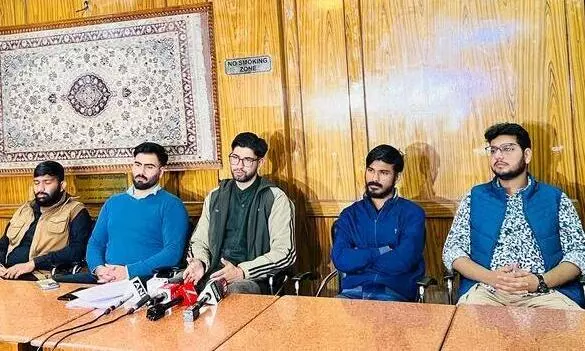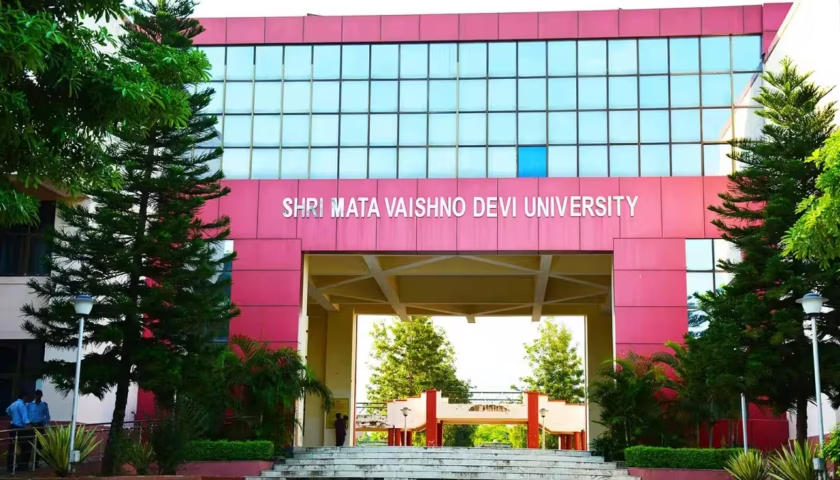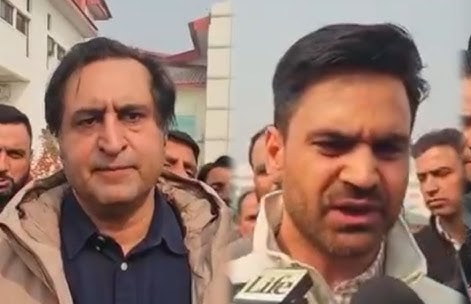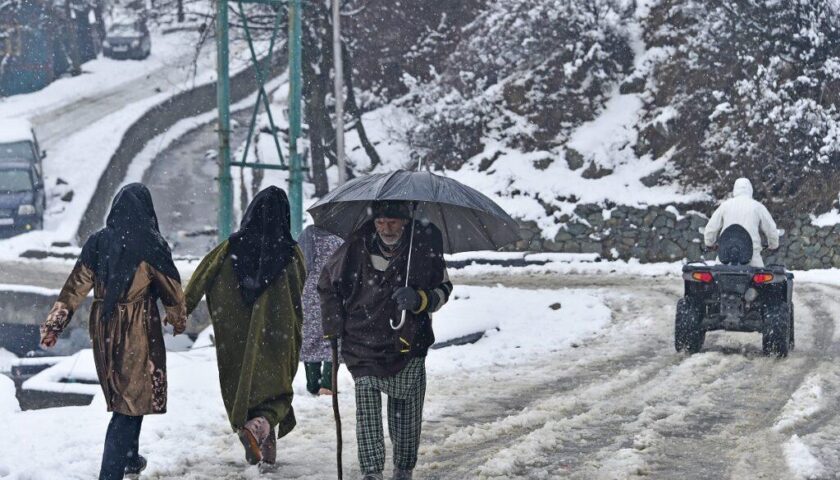From Mehbooba Mufti’s criticism of the Centre to Omar Abdullah’s caution against stereotyping—and JKSA’s plea to the PM—the Delhi blast has reignited debates over security, identity, and national integration.
By: Javid Amin | 17 November 2025
A Blast That Echoed Far Beyond Red Fort
The November 10 blast near Delhi’s historic Red Fort, which killed 10–12 people and injured several others, has quickly transformed from a national security incident into a full-scale political and social flashpoint. While investigations by the National Investigation Agency (NIA) and Faridabad Police are underway, the political reverberations have been immediate—and intense.
From Mehbooba Mufti blaming the Centre’s “failed policies” in Kashmir, to the BJP accusing her of appeasing radicals, to Omar Abdullah warning against blanket suspicion, to the Jammu and Kashmir Students Association (JKSA) appealing to the Prime Minister for the safety of Kashmiri students—the fallout has ignited debates about identity, governance, alienation, and India’s counterterror strategy.
This feature examines the incident from political, security, and social lenses, offering a comprehensive look at why a single blast has opened up multiple fault lines across India’s most sensitive region.
The Trigger: What Happened at Red Fort
The explosive device detonated near one of Delhi’s most iconic tourist destinations during evening hours, shattering a period of relative calm in the capital. As panic spread, security agencies launched a massive investigation, expanding their probe to Delhi NCR, especially Faridabad, where a large number of Kashmiri students and migrant workers reside.
What followed has been a familiar pattern:
-
Sweeping investigations
-
Widened questioning
-
A revived political blame-game
-
Renewed focus on Kashmir’s internal dynamics
-
Anxiety among Kashmiris living outside the Valley
Within hours, Kashmir’s political parties—often sharply at odds—stepped into the debate, each amplifying their own narrative about what the blast signified.
Mehbooba Mufti: “Kashmir’s Troubles Echoed at Red Fort”
Peoples Democratic Party (PDP) chief Mehbooba Mufti was the first major Kashmiri political voice to link the incident to the situation in Jammu & Kashmir.
Her Key Arguments:
-
Centre’s policy has “backfired”.
She accused the government of selling a “false narrative of normalcy” when, in her words, alienation and anger were rising beneath the surface. -
Youth disillusionment is growing.
Mehbooba said the promise of “replacing stones with laptops” had failed as Kashmiri youth remained caught between unemployment, mistrust, and an increasingly securitized environment. -
Divisive politics has created a poisonous atmosphere.
According to her, the current political approach in Kashmir focuses more on optics and less on reconciliation. -
Link to Red Fort blast.
She argued that the explosion was not an isolated incident but reflected a deeper, unresolved political crisis.
The Implication of Her Statement
Mehbooba effectively framed the blast not merely as terrorism, but as a symptom of political failures—a narrative that political opponents immediately seized upon.
BJP’s Fierce Pushback: “Illogical, Misleading, Dangerous”
The Bharatiya Janata Party (BJP) responded aggressively.
BJP’s Core Counterarguments:
-
Mehbooba’s comments, they said, vilify the entire Kashmiri youth, many of whom are pursuing higher education or jobs across India.
-
Her remarks are an attempt to justify extremism by blaming government policies.
-
BJP leaders emphasized that J&K has seen significant improvements after the abrogation of Article 370, citing development indicators.
Ranbir Singh Pathania’s Sharp Rebuttal
MLA Ranbir Singh Pathania went further, describing Mehbooba’s comments as:
-
“Illogical and misleading”
-
“A political stunt”
-
“An attempt to revive lost relevance”
-
“A dangerous portrayal of youth as radicalised”
He reminded the public of her past stance on militant Burhan Wani, framing her remarks as part of a pattern where she allegedly “romanticizes extremism”.
Political Messaging
The BJP’s rebuttal aims to accomplish two things:
-
Counter any suggestion that Kashmir remains unstable, reinforcing the Centre’s narrative of improved security.
-
Position Mehbooba as soft on militancy, undermining her credibility.
Omar Abdullah’s Measured Intervention: Fight Terror, Protect Innocents
National Conference leader and former Chief Minister Omar Abdullah took a distinctly different approach—condemning the blast unequivocally while calling for restraint in the investigation.
Omar’s Key Points:
-
Condemnation:
The attack is “highly condemnable”; no faith endorses the killing of innocents. -
Demand for punishment:
The guilty must face the strictest consequences. -
Warning against stereotyping:
Omar stressed that “not every resident of Jammu & Kashmir is a terrorist” and cautioned authorities against treating entire communities as suspect. -
Concerns over harassment:
His remarks came amid reports that over 2,000 Kashmiri students and tenants in Faridabad were being questioned. -
Call for balanced investigation:
He emphasized that fighting terror should not come at the cost of justice or the dignity of innocent Kashmiris.
Significance
Omar positioned himself as the moderate voice between two extremes:
-
Mehbooba’s “policy backfired” narrative
-
BJP’s “Kashmir is safe and critics are dangerous” narrative
His focus was not the politics behind the blast but the civil rights implications of the response.
JKSA Steps In: “Collective Suspicion Endangers Youth”
Perhaps the most significant development came from outside party politics.
The Jammu and Kashmir Students Association (JKSA) wrote a formal letter to Prime Minister Narendra Modi.
JKSA’s Allegations and Appeals
-
“Collective suspicion” of Kashmiri students
As investigations intensified, students reported profiling, questioning, and intimidation. -
Fear and insecurity across campuses
The association said Kashmiri youth studying in many states were feeling unsafe. -
Appeal to the PM for guidance
They urged Modi to instruct security agencies and state governments to ensure:-
Dignity
-
Non-discrimination
-
Transparent investigation
-
Safety measures for Kashmiri students
-
-
Concern over long-term alienation
JKSA warned that alienating innocent youth during counterterror operations could have severe consequences for national integration.
Why This Matters
JKSA’s intervention transforms the fallout from a purely political controversy into a societal and human rights issue.
Political Analysis: Competing Narratives Around Kashmir
The blast has opened a new chapter in the long-running battle of narratives between Kashmir’s political forces and the Centre.
1. Mehbooba Mufti’s Narrative:
-
Centered on alienation, youth resentment, policy failure, and a need for political outreach.
-
Frames the blast as symptomatic of deeper issues.
2. BJP’s Narrative:
-
Focuses on development, security successes, and delegitimizing critics.
-
Frames Mehbooba’s stance as dangerous appeasement.
3. Omar Abdullah’s Narrative:
-
Calls for balance—fight terror, but not at the cost of justice.
-
Focuses on community trust, not political blame.
The Larger Political Chessboard
These divergent responses are not just ideological differences; they reflect electoral strategies, reputational interests, and the race to control the Kashmir narrative nationally.
Security Analysis: Investigations, Profiling, and the Challenge of Precision
From a security perspective, the authorities face two competing pressures:
1. Pressure to Solve the Case
A terror attack in the capital demands:
-
Rapid response
-
Maximum questioning
-
Following even weak leads
-
Ensuring public reassurance
This explains the large-scale questioning of students and tenants.
2. Pressure to Avoid Human Rights Violations
Counterterror operations in India have repeatedly struggled with:
-
Over-policing
-
Profiling based on region or identity
-
Unwarranted detentions
-
Alienation of communities
Investigators are walking a tightrope:
More precision means less alienation—and more trust from the community.
Social Analysis: Identity, Integration, and the Kashmir Stereotype
The Red Fort blast has revived one of the longest-standing social tensions in India: the Kashmiri stereotype.
1. Kashmiris and “Collective Suspicion”
Whenever a terror incident occurs, Kashmiris living outside the Valley often report:
-
Increased police checks
-
Hostel inquiries
-
Tenant verification drives
-
Social hostility
-
Hate speech on social media
This phenomenon reflects decades of conflict-driven stigma.
2. Campus Vulnerability
University campuses across India host thousands of Kashmiri students. They often become soft targets when:
-
A terror attack hits headlines
-
Political rhetoric intensifies
-
Rumors spread
JKSA’s appeal highlights the emotional toll on these students, many of whom already feel disconnected from both Kashmir and the mainstream.
3. Trust Deficit and Alienation
Episodes of profiling contribute to:
-
Deepened mistrust of institutions
-
Emotional alienation
-
The feeling of being seen first as “Kashmiri”, not “Indian”
-
Social isolation on campuses
This is exactly what leaders like Omar Abdullah warn against—and what Mehbooba claims is the product of flawed policy.
Why This Blast Became a National Narrative Battle
Several factors explain why the fallout from the Red Fort blast escalated so rapidly:
1. Symbolic Location
A terror attack at Red Fort—a national monument tied to India’s independence—carries high symbolic weight.
2. Kashmir’s Political Sensitivity
Any security incident is immediately tied to Kashmir’s internal politics, given historical baggage.
3. Upcoming Elections
Political parties are eager to shape narratives that will resonate nationally.
4. Youth Anxiety
Large-scale questioning of Kashmiri students outside the Valley creates both immediate social repercussions and long-term political capital.
5. Information Vacuum
With limited publicly available information about the perpetrators, political leaders fill the void with their own interpretations.
What Comes Next? Future of Security and Social Cohesion
The blast has exposed several urgent national questions:
1. Can India balance security with human rights?
India must strengthen intelligence without resorting to sweeping suspicion.
2. Can Kashmir’s youth be engaged constructively?
The contrasting narratives reflect deeper anxieties about
-
education
-
employment
-
alienation
-
identity
3. Will political parties rise above rhetoric?
So far, the blast has widened political divides rather than bridged them.
4. Can the Centre rebuild trust with Kashmiri students outside Valley?
The PM’s response (if any) to JKSA’s appeal will be closely watched.
Bottom-Line: A Blast, A Region, and a Nation at Crossroads
The Red Fort blast has done more than trigger a security investigation. It has reawakened unresolved debates about Kashmir’s identity, India’s counterterror policies, political accountability, and the societal consequences of stereotyping.
-
Mehbooba Mufti sees the blast as evidence of Kashmir’s unresolved political wounds.
-
BJP sees her remarks as dangerous and misleading.
-
Omar Abdullah sees a need to protect the innocent while punishing the guilty.
-
JKSA sees growing fear among Kashmiri youth outside the Valley.
As the investigation continues, the challenge before India is twofold:
-
Ensure justice for the victims of the blast.
-
Ensure dignity for those who are innocent but vulnerable to suspicion.
The coming weeks will show whether India can strike this balance—or whether the blast will deepen the divides it has already exposed.




